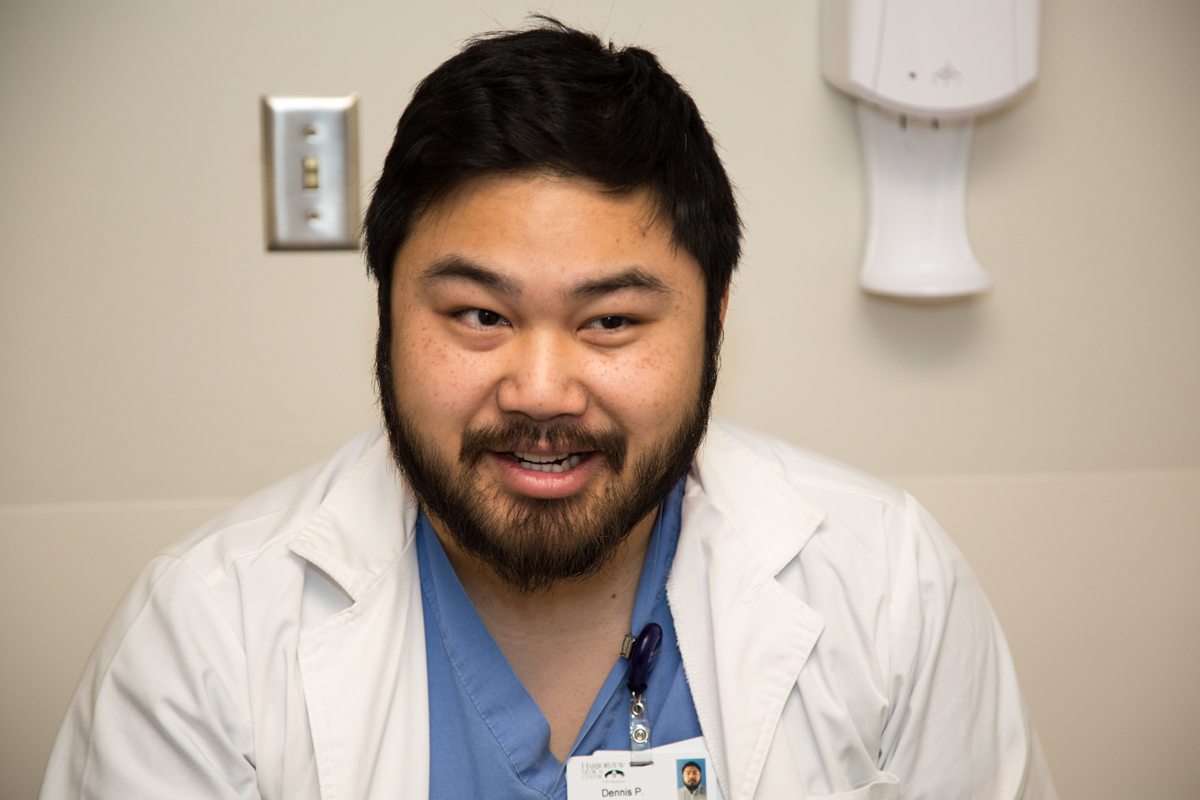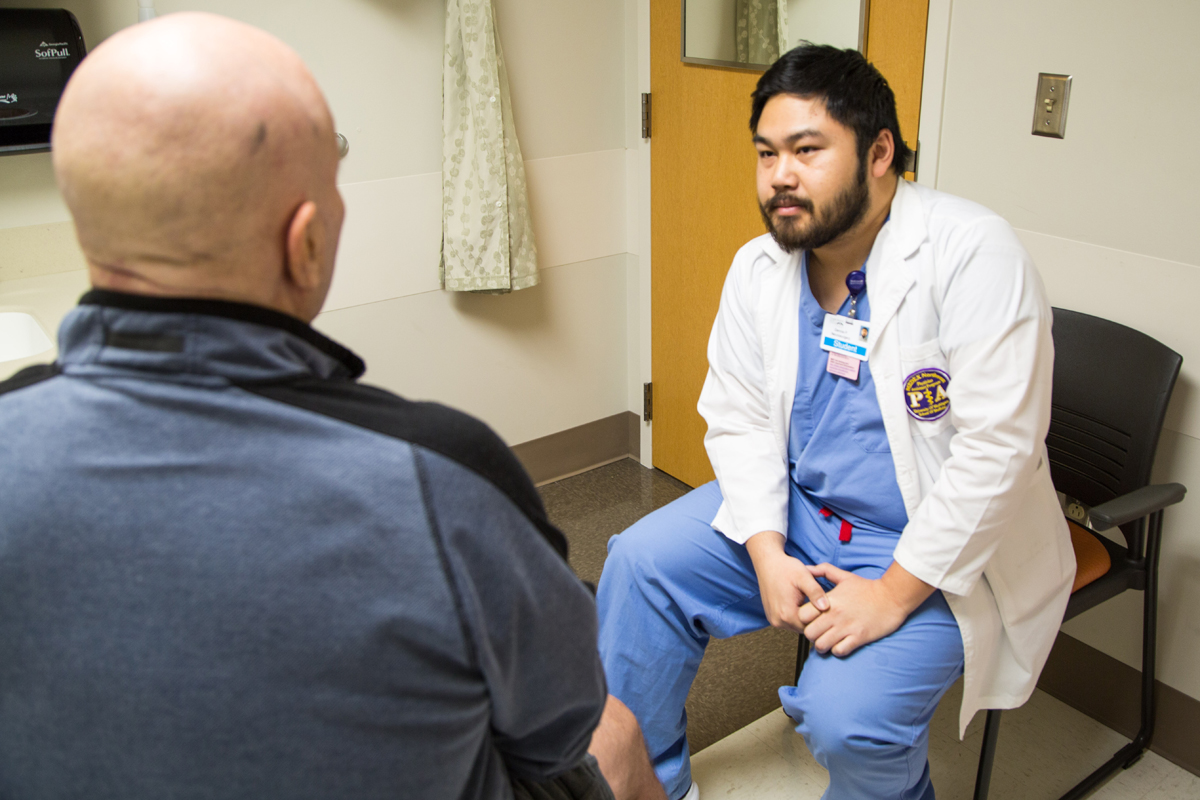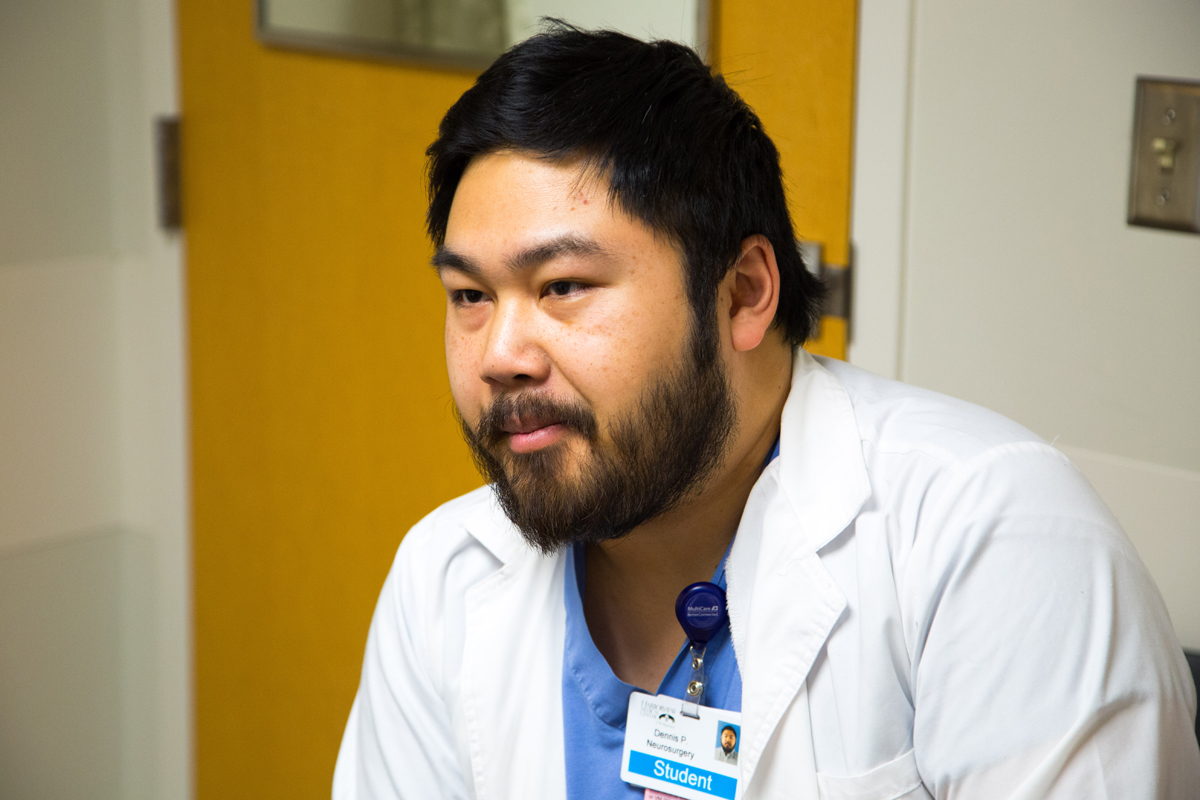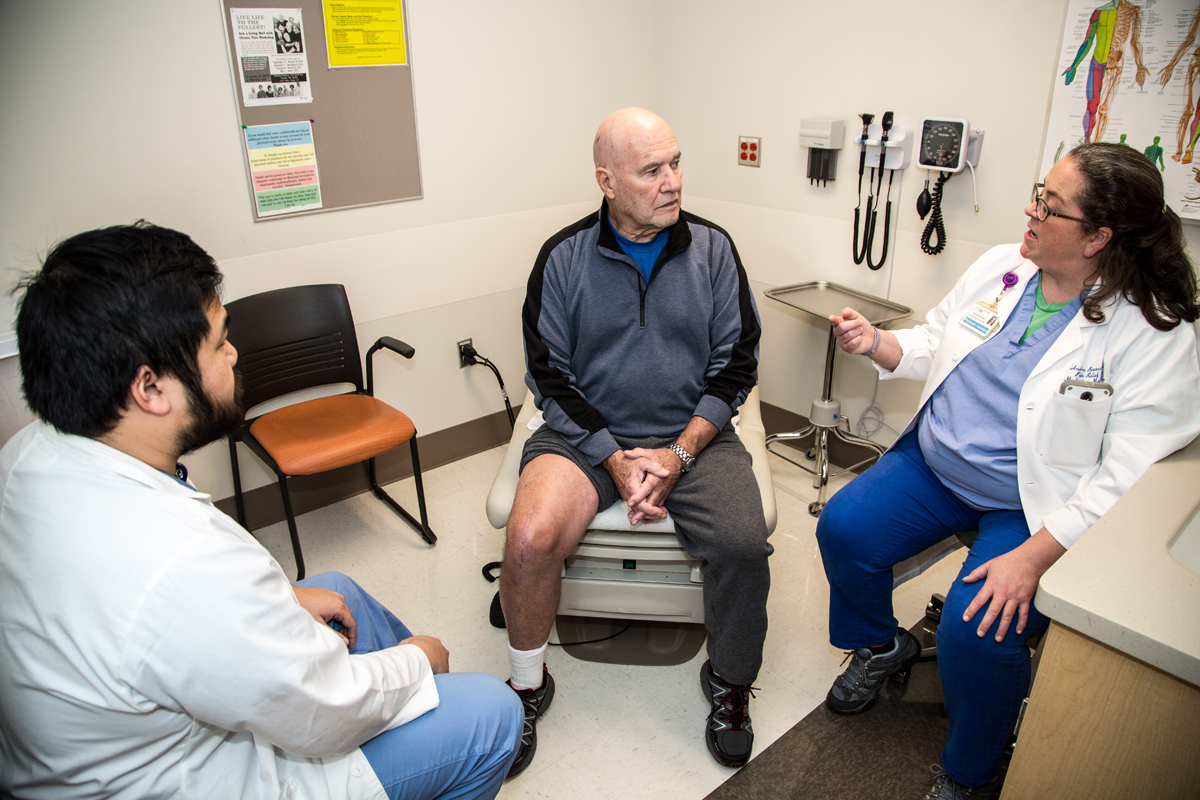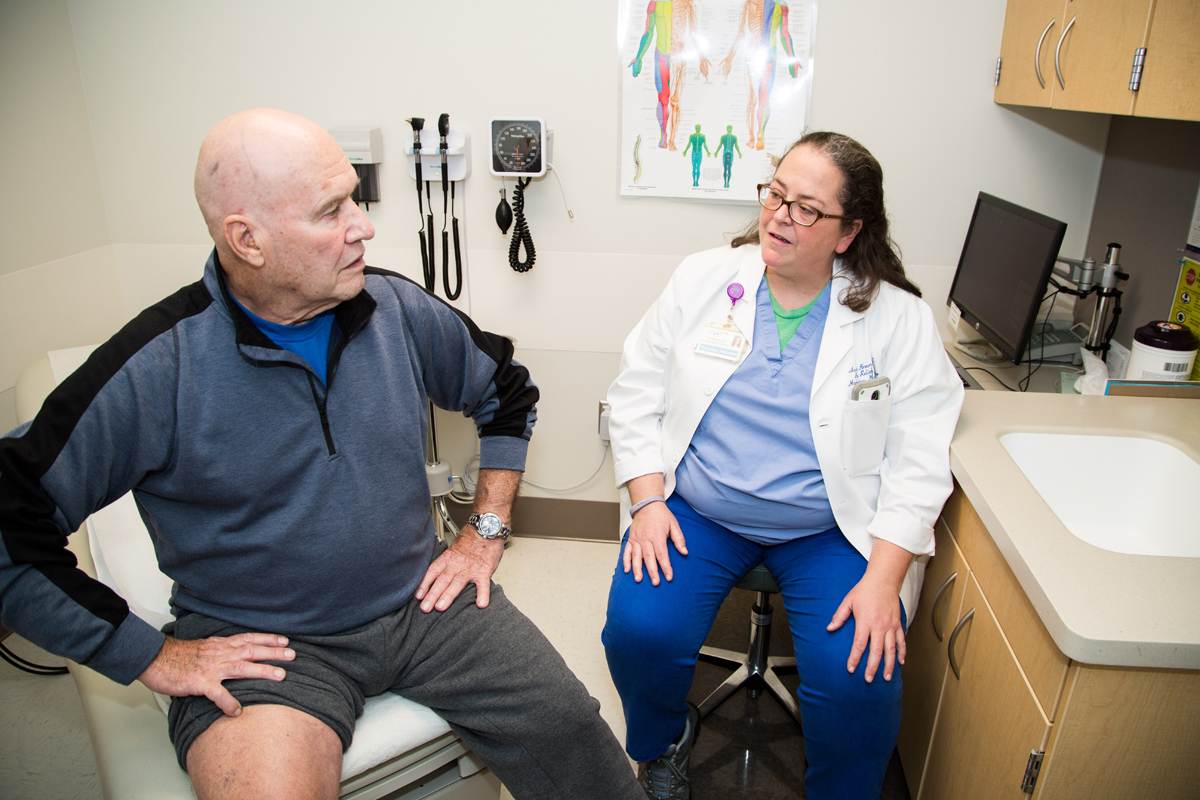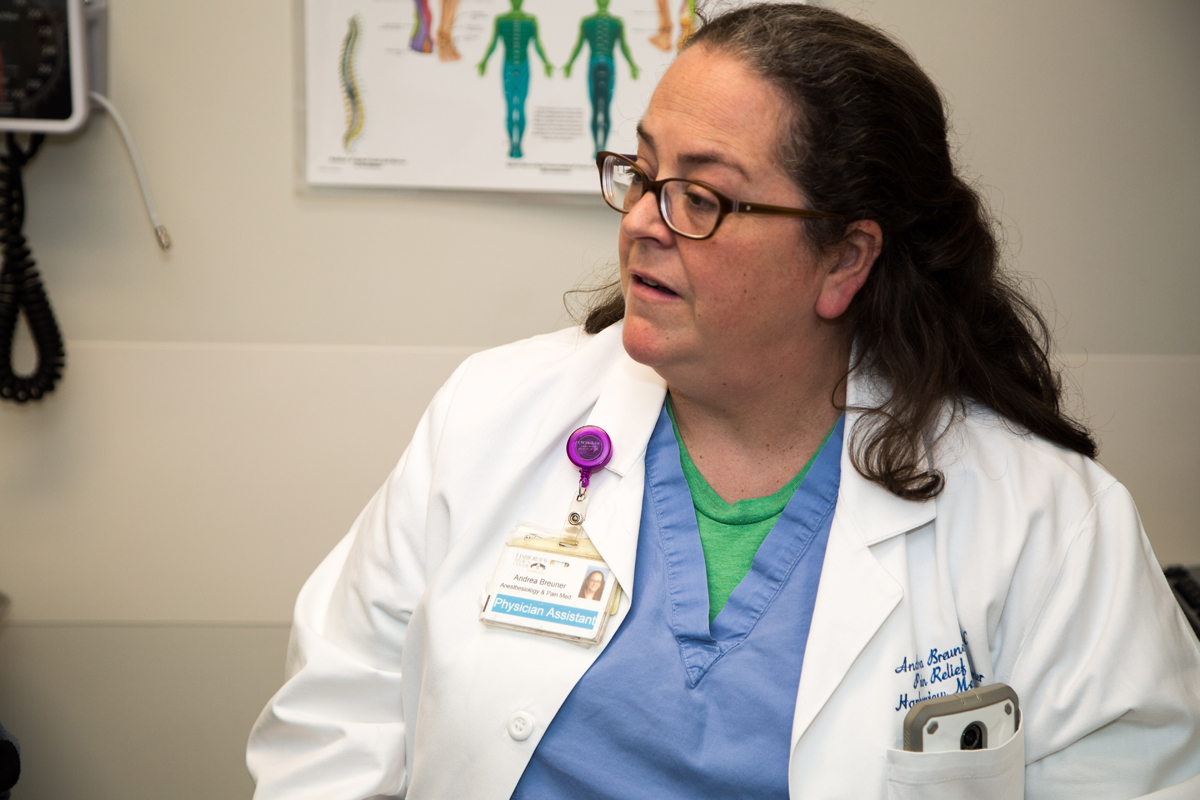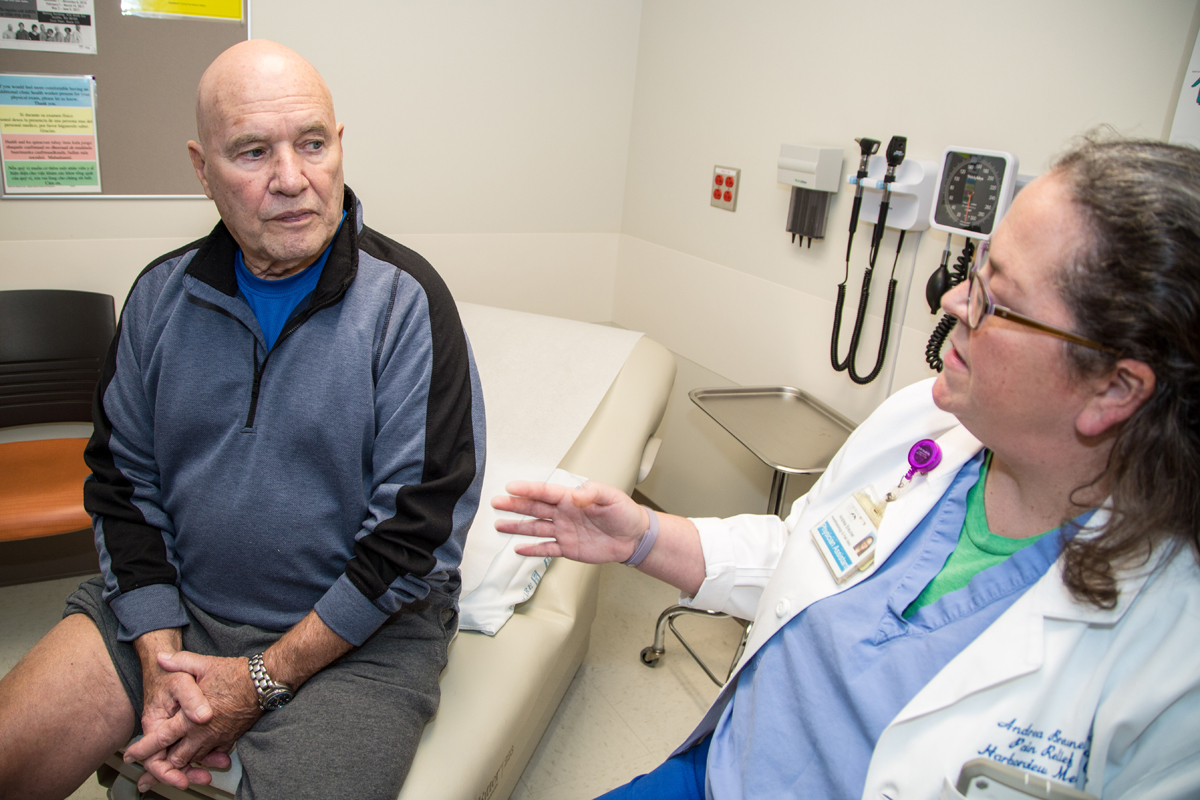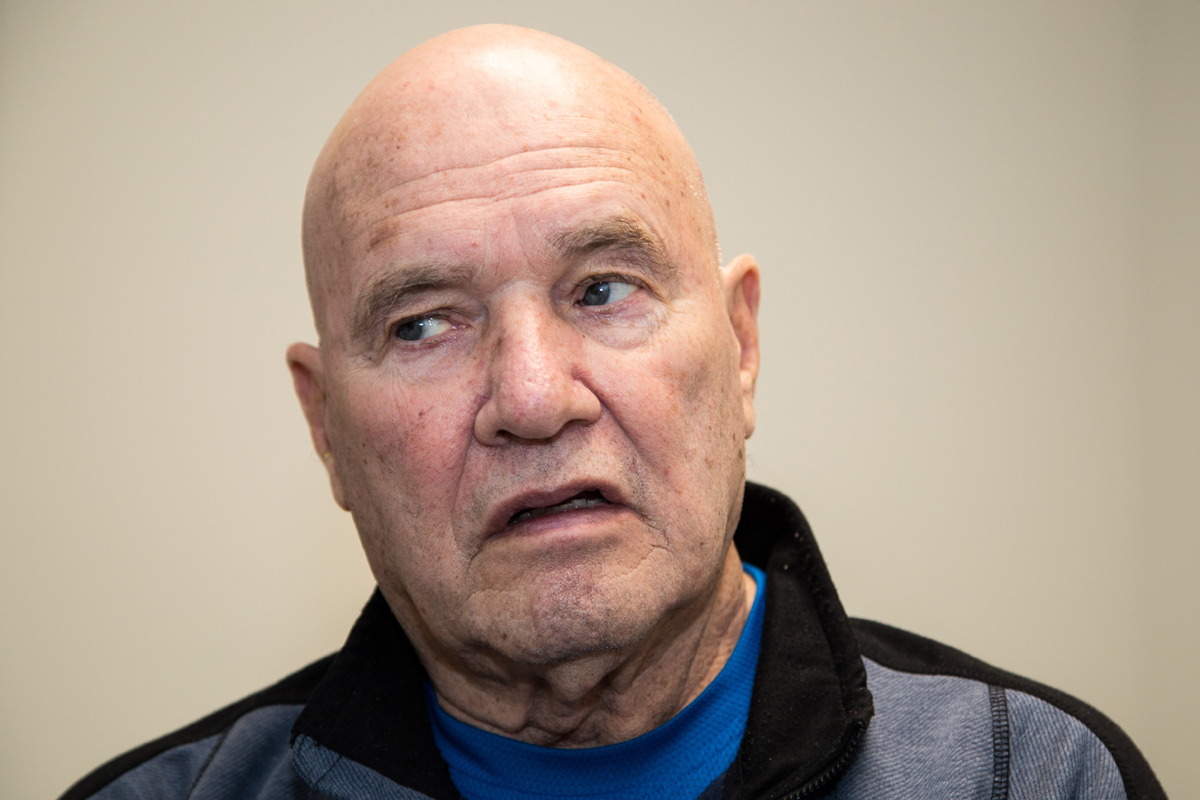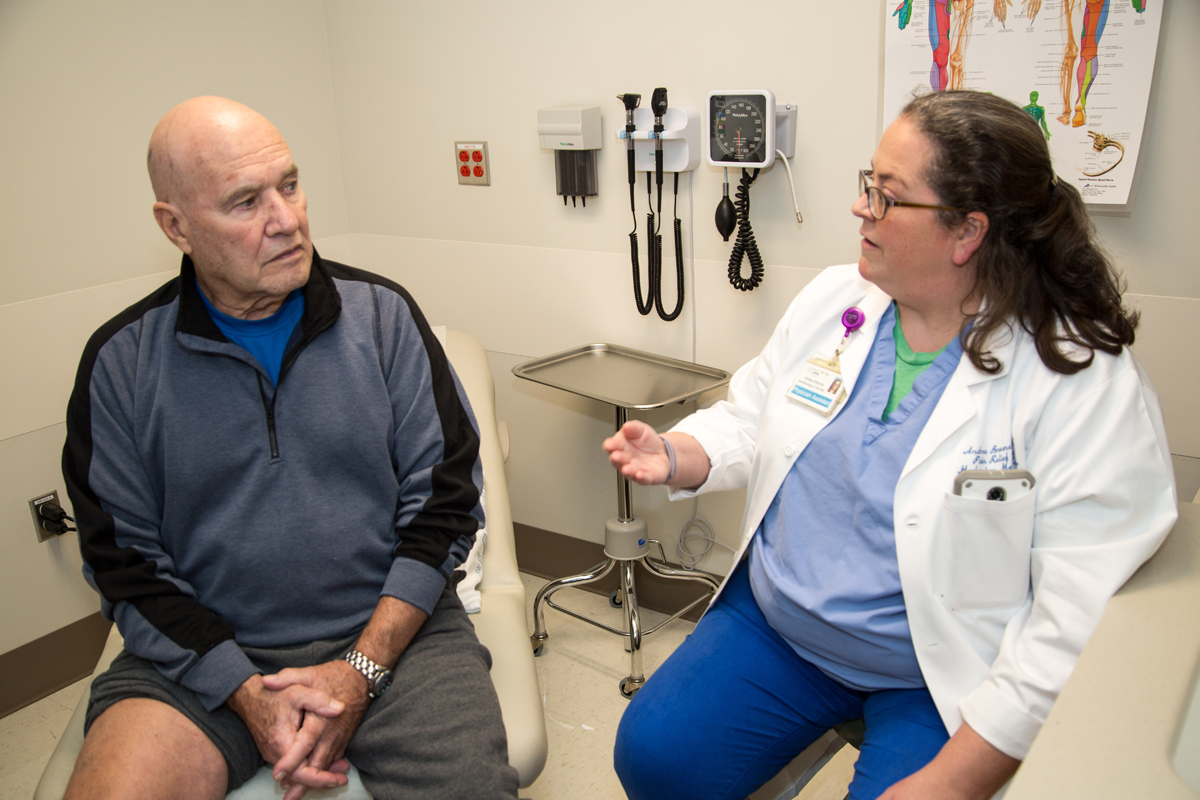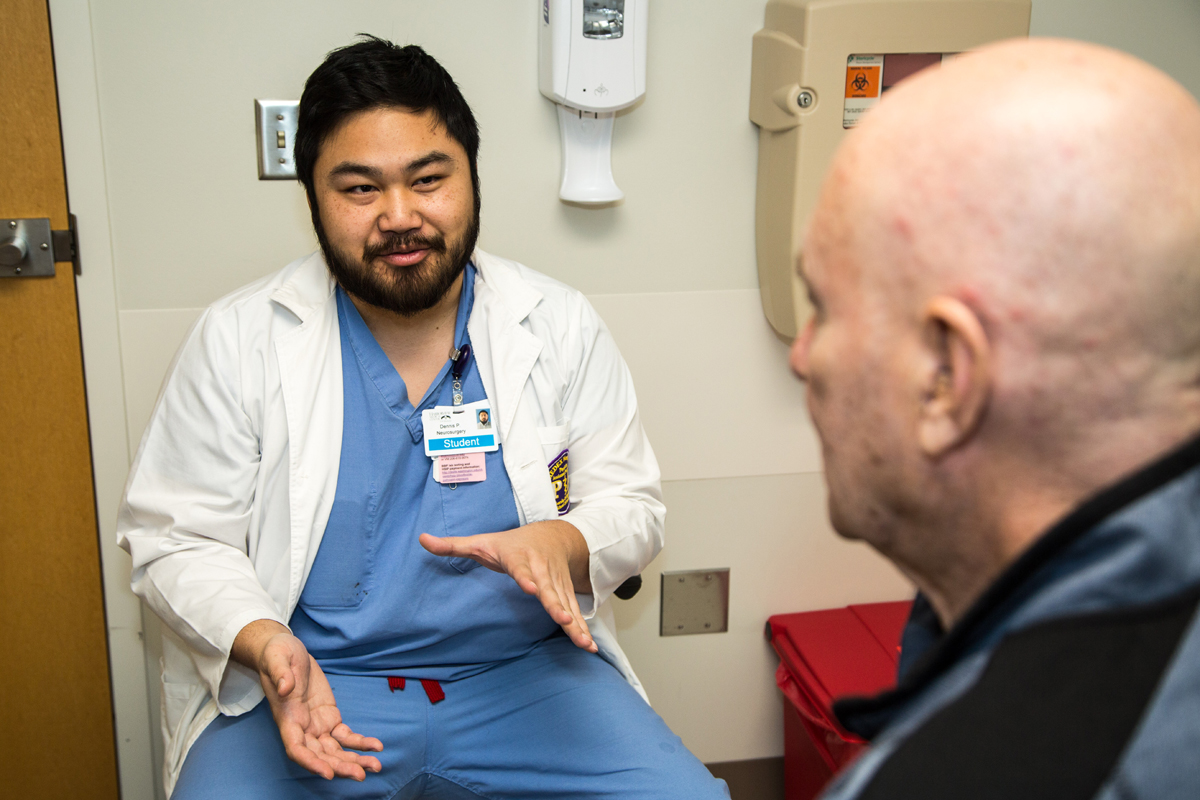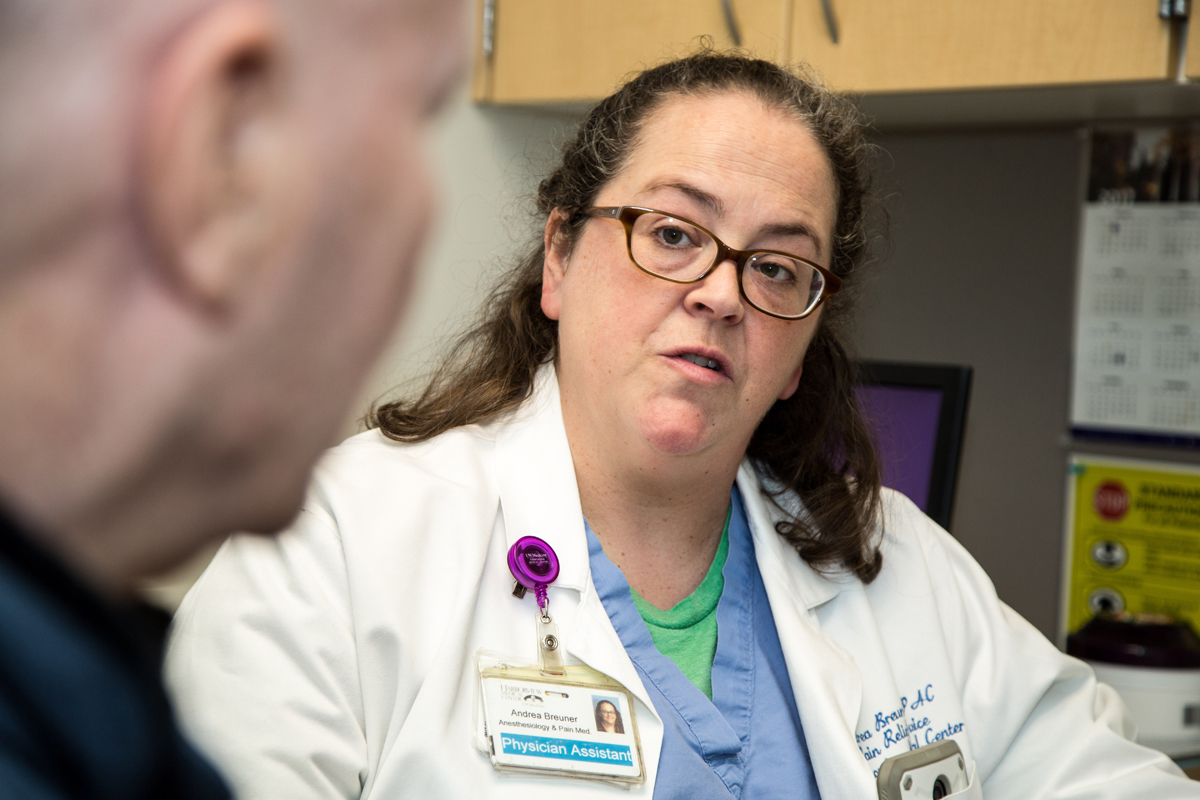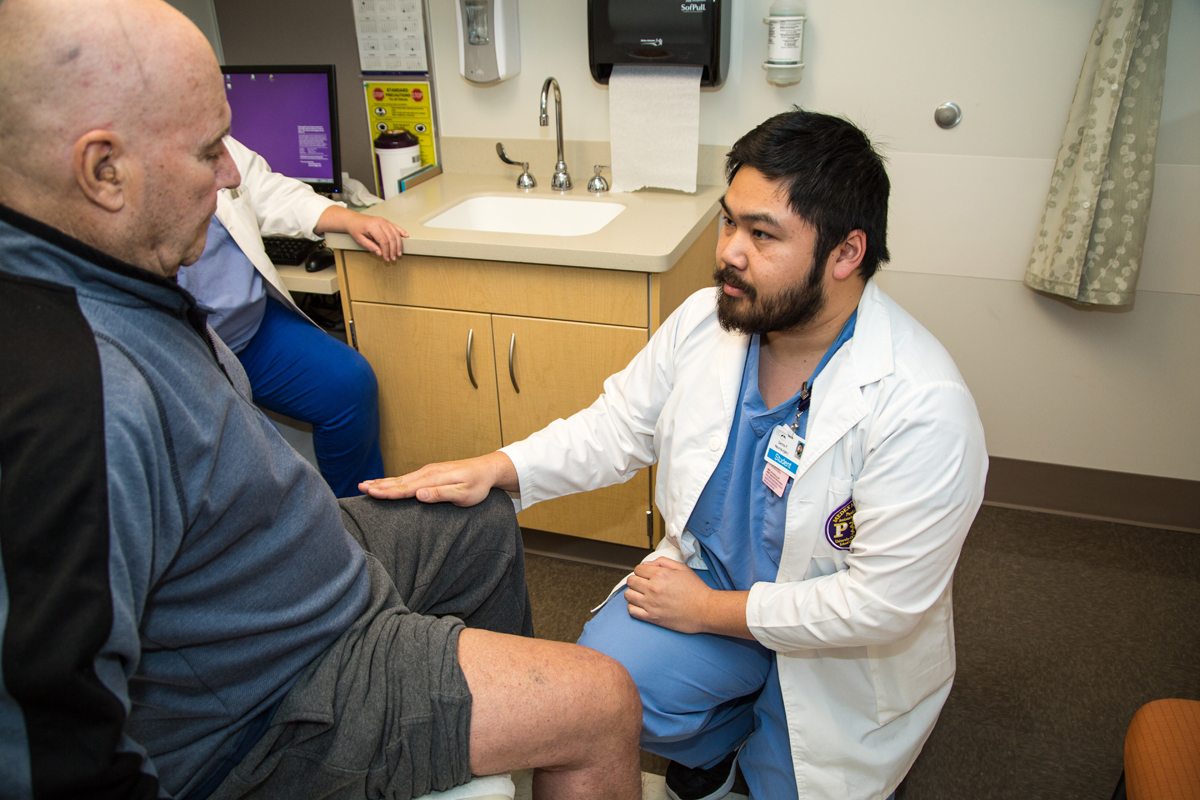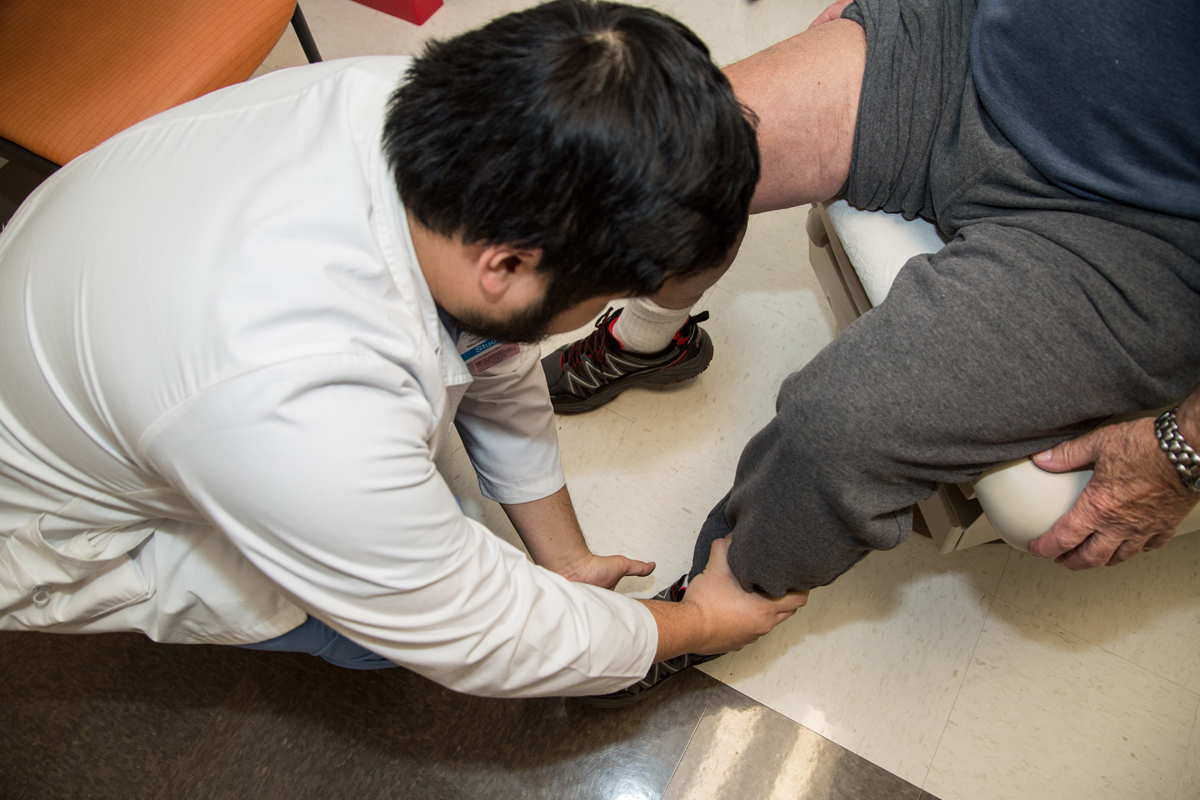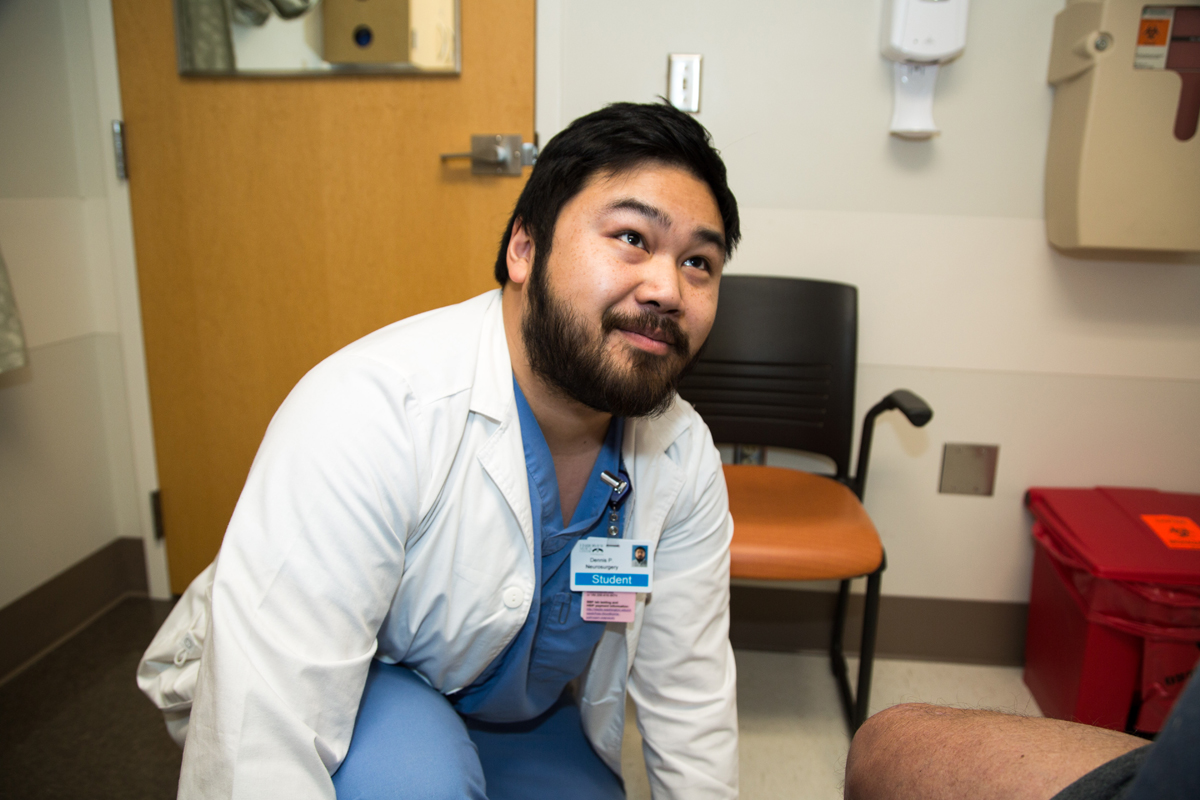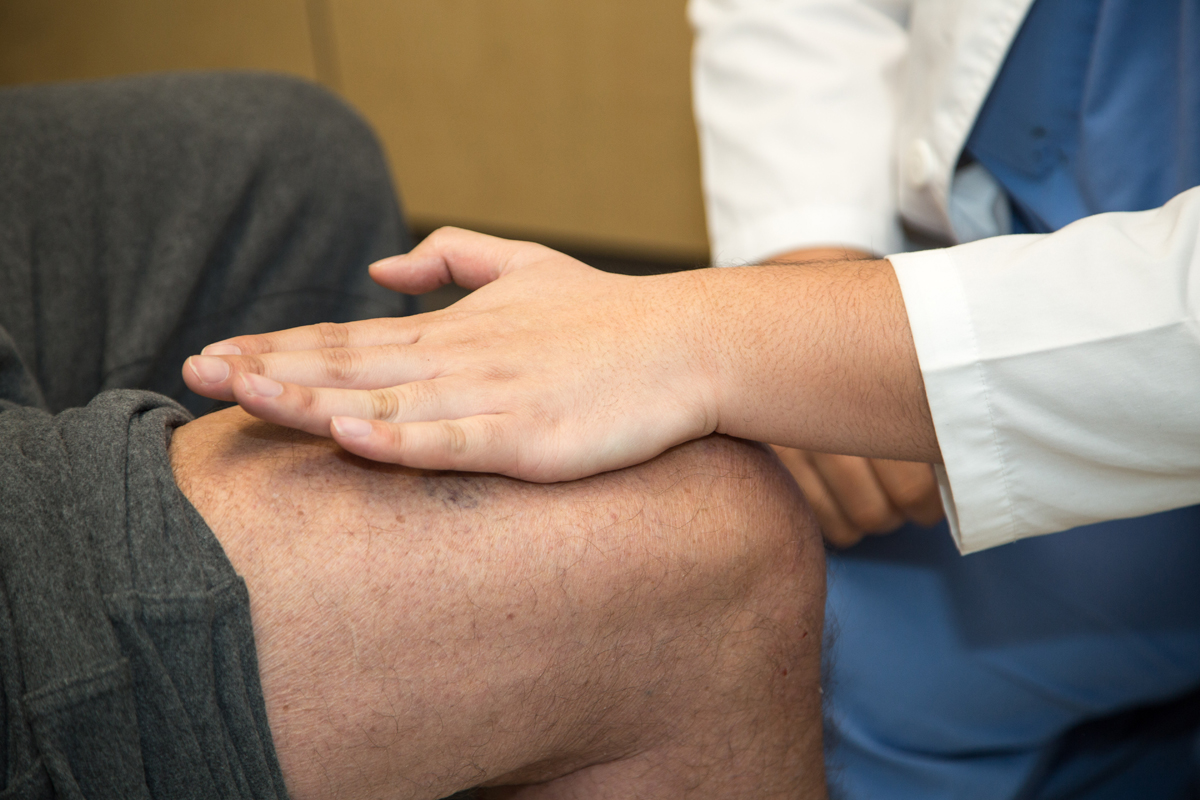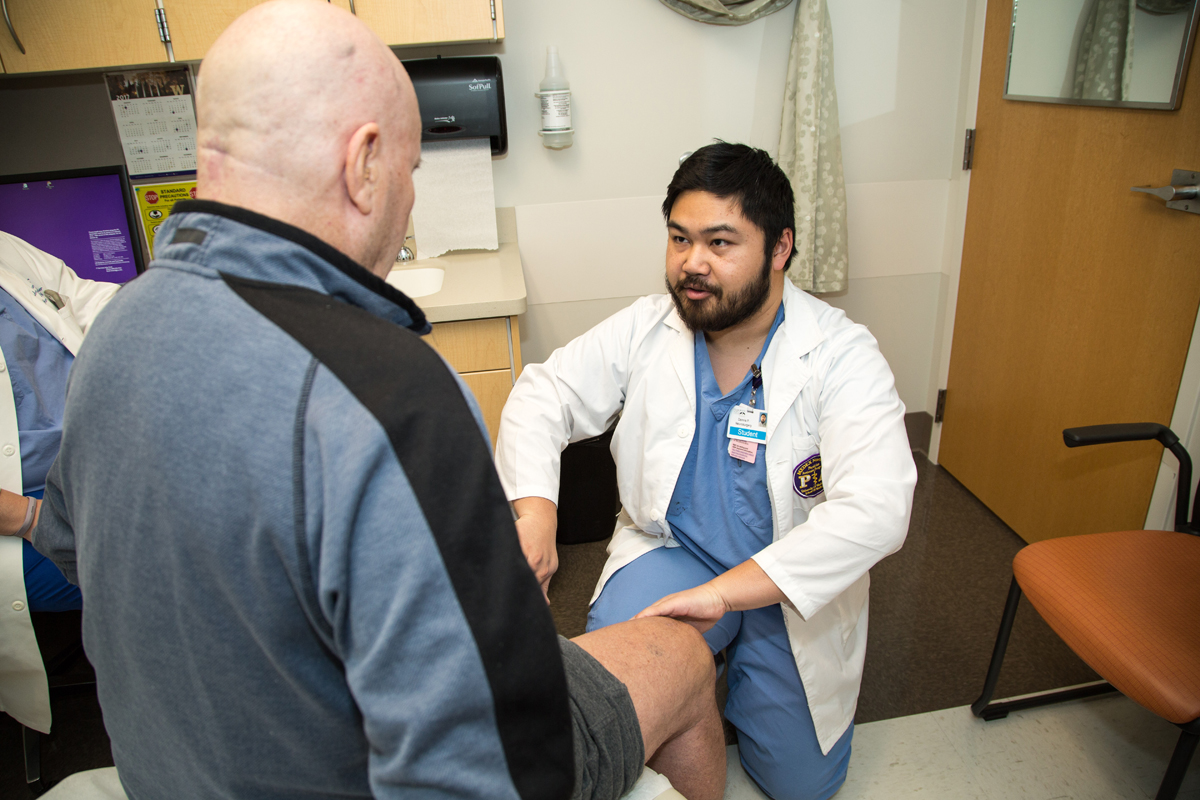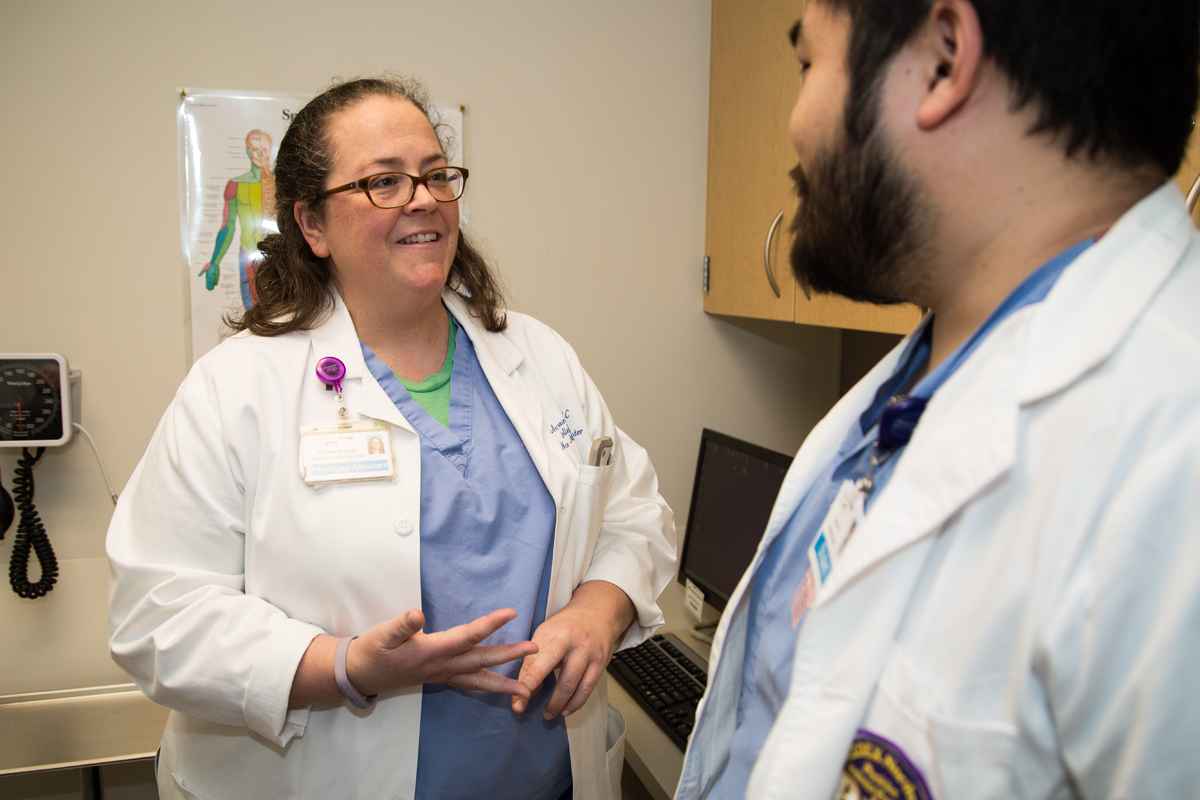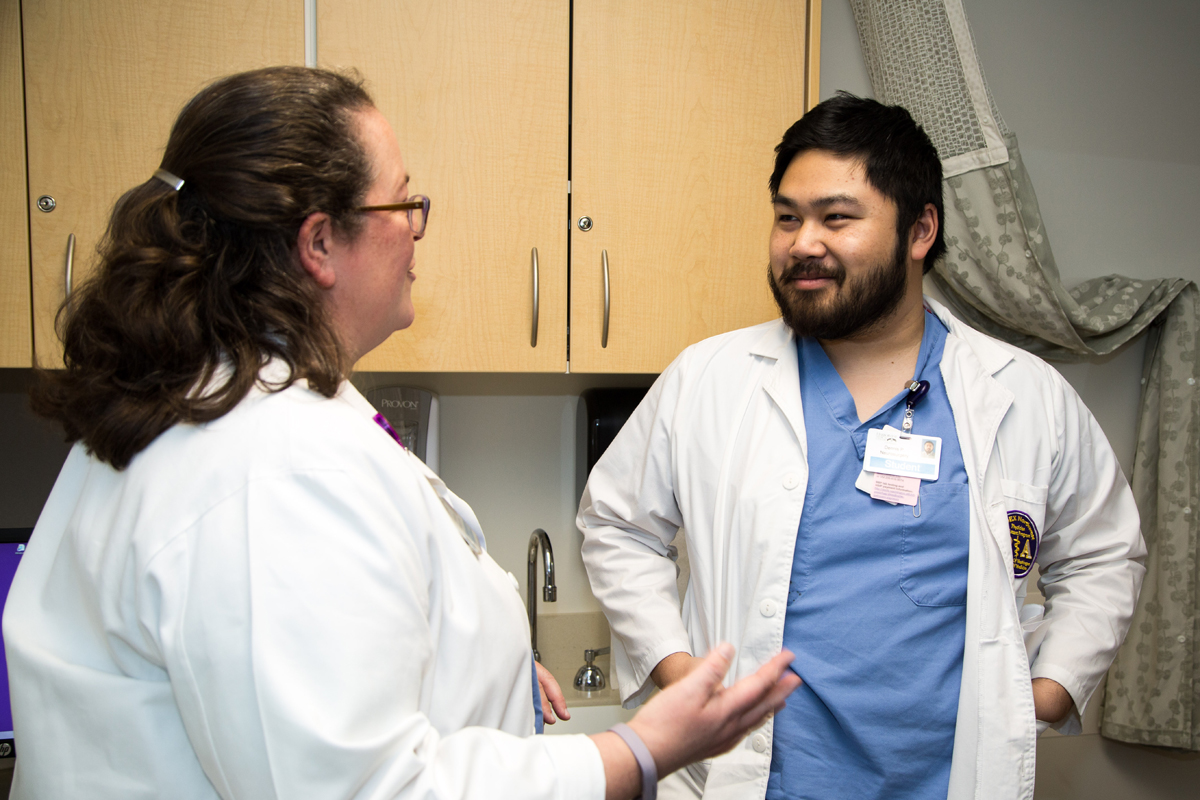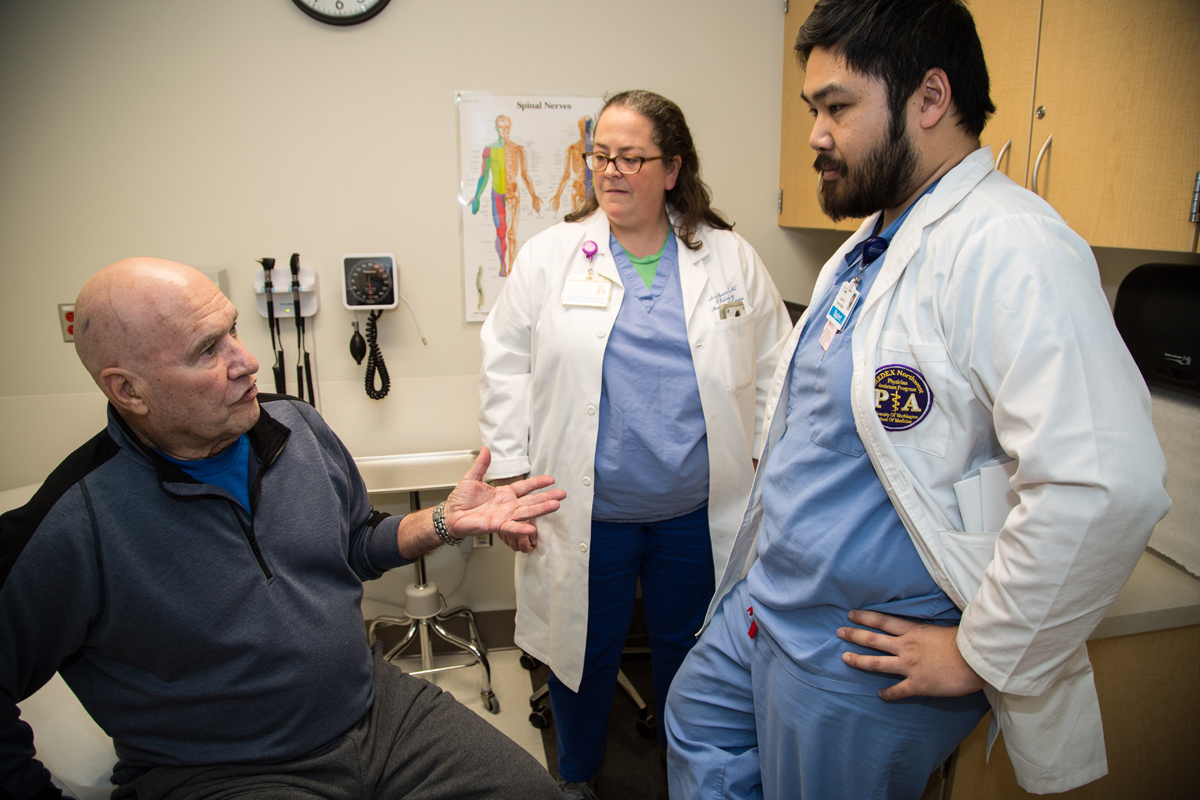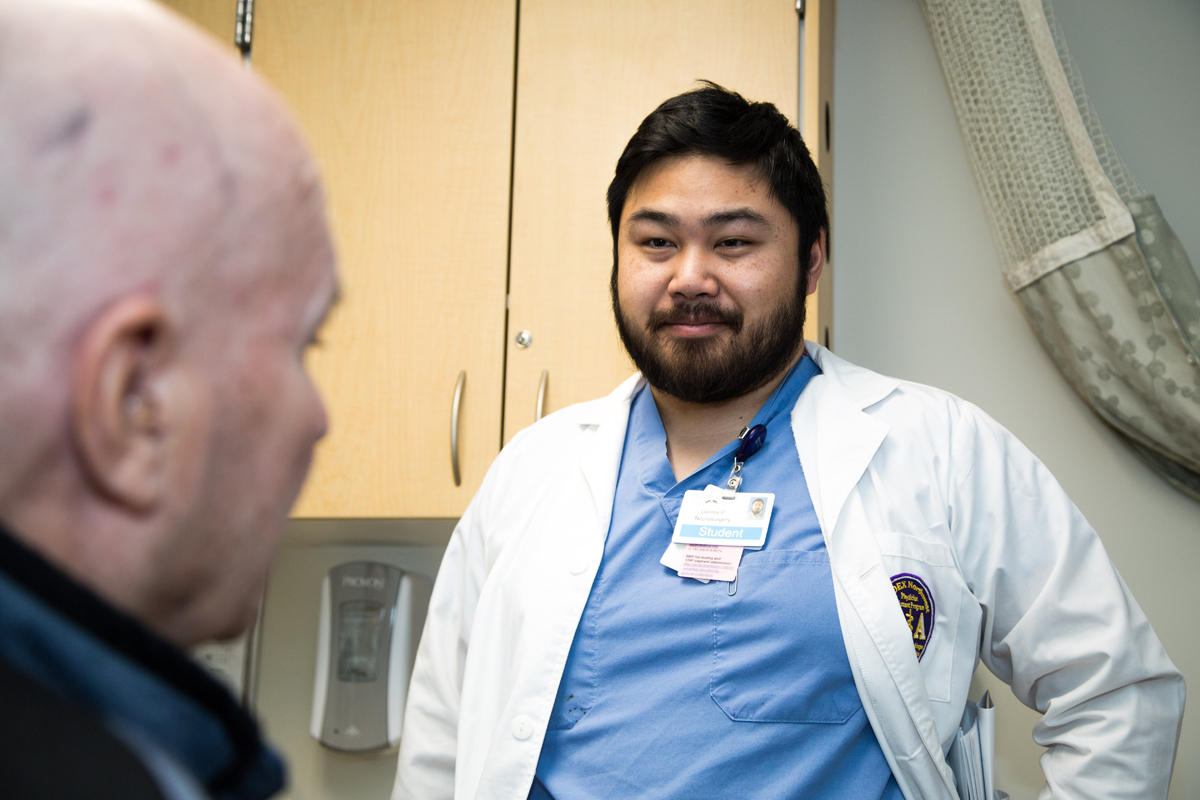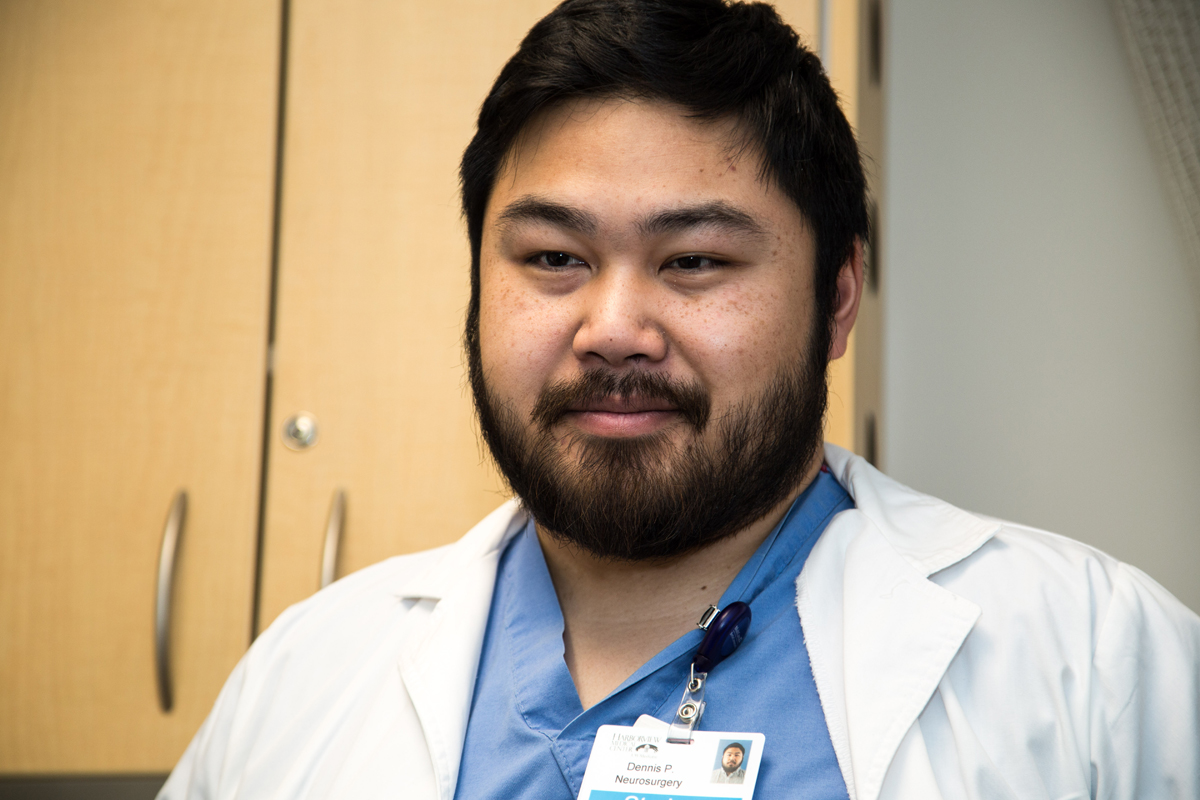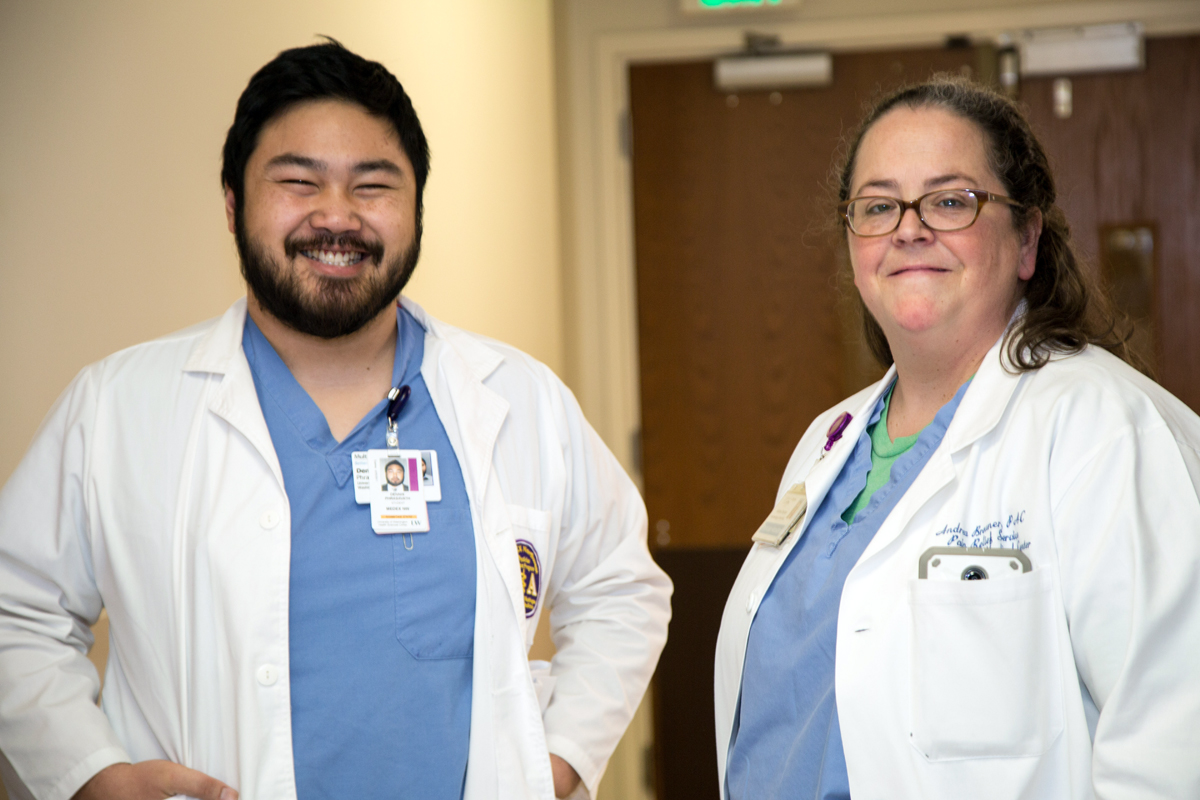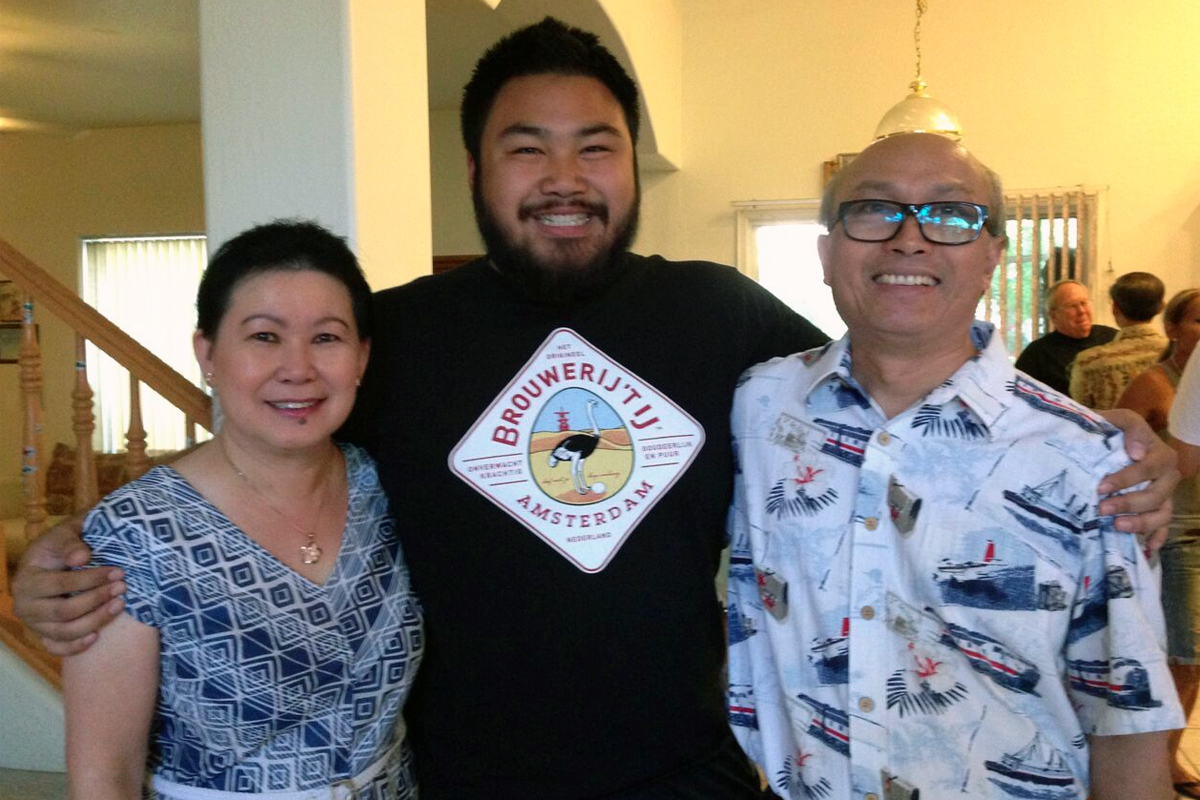Dennis Phrasavath is on a one-month rotation at Harborview Pain Relief Service under preceptor Andrea Breuner, PA-C. A graduate of MEDEX Northwest Seattle Class 34 in 2002 herself, Andrea shepherds Dennis through the specialized area of anesthesiology and pain medicine during his clinical year as a physician assistant student.
Dennis’ interest in science started early.
“I’d say that chemistry was my gateway drug into science,” he tells us. “During those last couple years of high school, I picked up a bunch of science and A&P courses. I started realizing that these were the things I liked.”
Still, the path forward was not entirely clear. Dennis got into college at Arizona State University in Tempe, AZ with no idea what he wanted to do. He explored a few different career paths before settling on nursing. “I had a sister-in-law who was a nurse, and she urged me to take a look at it,” he says. “Being generally the indecisive person that I am, I didn’t know if I could commit to anything.”
The nursing program at ASU proved to be very competitive. There were perhaps 200 to 300 applications, with the school accepting around 60 students. Dennis got in on his second attempt.
“I thought that biology was very interesting,” he says. “Physiology was very interesting too. Going to nursing school would be a way to see that manifested in real life—to see people affected by varying physiology or pathophysiology. I wanted to interact with people.”
At the same time, Dennis confesses that there was a “people aspect” that he didn’t think he would grasp. That turned out not to be a real concern. After spending time with him, it’s clear that Dennis is eminently relatable.
As a nurse, Dennis worked on the front lines in emergency medicine and trauma. “My job as a nurse was to find problems and fix them in conjunction with the rest of my team,” he says. “Being at the bedside, I realized that sometimes I spent a little too much time thinking about what could be wrong. As a nurse, you do that. I wanted to change that perspective and maybe try to figure out what was wrong on my own and direct that care. Instead of being that person that’s doing things, I want to be the person that figures out what to do.”
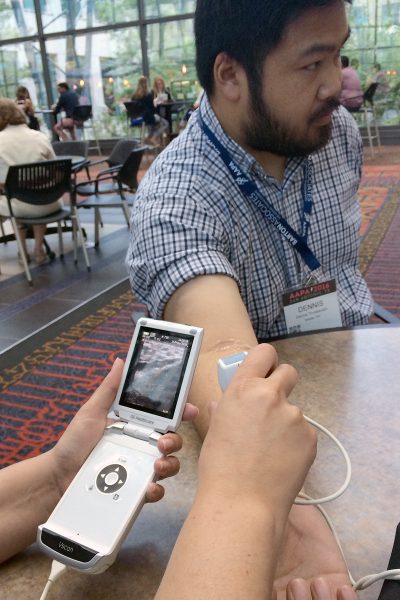
Dennis Phrasavath with a colleague demonstrating a portable ultrasound device at the 2016 AAPA conference in San Antonio.
After working over three years as a nurse, Dennis considered returning to school as a physician assistant or nurse practitioner. For a time, this was a huge conflict in his mind. There had been a strong PA and NP presence in the last hospital where he worked, so he was familiar with both professions. He did a lot of research about both PA and NP schools and their curricula.
In the end, Dennis realized that becoming a physician assistant was a better fit. “It’s more standardized,” he says. “PA education covers the gamut of illnesses and populations. I would have to learn about children, OBGYN, elder adults and behavioral medicine—the whole range.”
His years in nursing taught Dennis that behavioral medicine lurks everywhere. “Your patient might be an adult with cardiac issues, and they may be depressed,” he explains. “That exists no matter where you are, just like this service in pain management. Everybody can have pain, everybody can have depression, so it’s useful to learn how to treat it. When you come right down to it, becoming a PA is a generalist education. After a good foundation in a lot of different things, I’m able to adapt and choose what I want.”
Dennis explains that with nurse practitioner education, one must choose a track. “You can become a family nurse practitioner, acute care nurse practitioner, or psychiatry, pediatric, anesthetist or women’s health NP,” he says. “I’m maybe missing one or two. But beforehand, you should have an idea of what you want to do.”
At 28 years of age, Dennis is one of the younger members of MEDEX Seattle Class 49. Still, he seems wiser than his years. “I’m able to draw on a lot of other people’s wisdom and experience,” he says. “Not just clinically, but in life. I’ve been able to draw on people’s life experience to help me and, in exchange, I like to think that I contribute too.”
Prior to nursing school at ASU, Dennis didn’t have much of a work history.
“I worked as a temp at a manufacturing plant,” he says. His mother worked at the same plant in quality assurance. His only job after that was as a teaching assistant for human pathophysiology for nursing students. “I got paid to do that for 10 hours a week.”
Teaching is part of Dennis’ learning style. “I like explaining things because it helps me learn and I like helping others understand things too,” he says. In part, that’s what’s carried him through the didactic year at MEDEX. “I had a group of people that I could talk to and explain concepts to whether verbally, visually or otherwise.”
Dennis recalls that, as a first generation American of Laotian immigrants, he always enjoyed interpreting their adopted country to his parents. “I didn’t even think they would listen, but I would talk to them and I loved explaining things.”
When he decided to move into PA education, Dennis applied to around 17 schools including MEDEX Northwest. “It was almost a last-minute decision,” he says. “I’m kind of a procrastinator.”
Right off he was excluded from a large number of schools due to applying late and rolling admissions. He received three interview invites and went to two interviews. One was at MEDEX. The other was at Northern Arizona University on the day after his MEDEX interview. Dennis was accepted into both programs.
So why MEDEX?
“Well, it was multi-factorial,” says Dennis. “MEDEX is established. It has the University of Washington behind it. And Northern Arizona University is a relatively new program. By all reports NAU is an outstanding program, but I believe their second PA class was in session at that time.”
Leaving Arizona to attend PA school in Washington State was not an easy decision. “They’re both state schools, but NAU would have cost me about 40% less,” he says. But, like many people, Dennis wanted to get away from where he grew up. “I like Seattle, and I wanted to go to Seattle. The city speaks to me more, and the culture speaks to me more.”
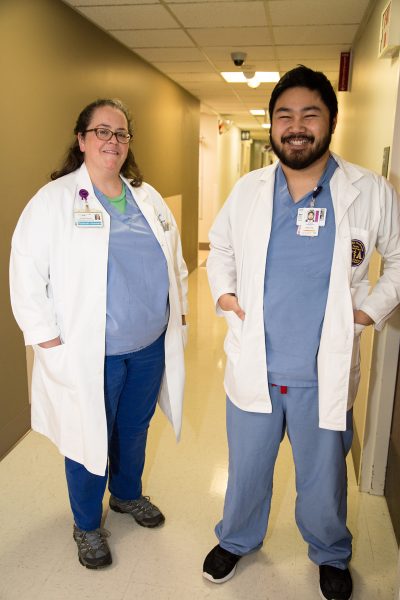
Preceptor Andrea Breuner, PA-C with Dennis Phrasavath during his 1-month rotation at Harborview Pain Relief Service.
During his first year at MEDEX—the didactic year—Dennis applied a survival strategy developed during his years in nursing school. “Getting through the didactic phase of this training is, for lack of better words, playing the game,” he states. “You stay within the rules and do what is required of you. Try to be good at it and you’ll succeed. You’re learning. Learn everything you can about medicine now, and how to get that information. It’s all about learning these things.”
Dennis concedes that his earlier experience with nursing school prepared him for his time at MEDEX. “The pace is very similar,” he says. “You learn a lot quickly every day with the same group of people. Yes, deadlines approach and I stress about them. Everybody has some element of worry inside them, but how we manifest that is different.”
The transition from nurse to becoming a provider is more difficult than Dennis thought it would be. One of the biggest hurdles he has had to overcome is how to once again be a novice in a familiar setting. He admits that the roles are similar enough that everything seems familiar. But he’s being asked to change his perspective in the way he looks at patients.
Dennis elaborates. “As the provider, you make the decisions based on what you find. You’re doing an assessment. These are your findings, this is your decision making, this is your thought process, ‘I want to do these things because I think these things are happening.’”
Once he gets through his clinical rotations and graduates in August of 2017, Dennis sees himself staying within the Pacific Northwest. “Somewhere between Portland and Seattle, but not limited to the big cities,” he says.
Looking ahead, he doesn’t favor any particular direction for a practice. “Emergency medicine and trauma surgery are what I know, and I think that that would be a good fit for me,” he says. “My hope is that, through sampling all of these different rotations, I get exposed to a lot of different things. I learned that I actually enjoy critical care medicine a lot. That’s a side of medicine I didn’t get to see much.” Working as a nurse in the emergency department, he’d patch up the patient then send them off for prolonged care.
Dennis reflects back on the support of his family.
“I’m lucky and very grateful to my parents,” he tells us. “They told me many times that their primary goal was to make sure that me and my brother were well supported so we could go to school and do good things with our lives. In my adult life they have told me several times that that’s been their main driving force. That’s all they wanted out of life.”
“It’s interesting because my brother and I were always rebellious. So hearing that as adults is humbling.”
